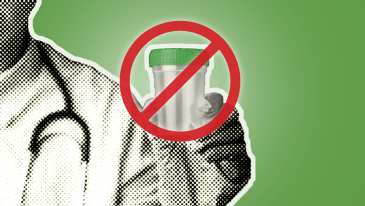
Washington DC Mayor Muriel Bowser has signed legislation, the Cannabis Employment Protections Amendment Act of 2022, protecting those who use cannabis from facing discrimination in the workplace.
Prior to the law’s enactment, it must undergo a Congressional review — as is the case with all legislation passed by the DC City Council. If Congress takes no action during the review period (typically 30 to 60 days), then the measure takes effect. If Congress chooses to oppose the law, that action must also be approved by the President.
The Cannabis Employment Protections Amendment Act prohibits employers, with certain exceptions, from “refus[ing] to hire, terminat[ing] from employment, suspend[ing], fail[ing] to promote, demot[ing], or penalize[ing] an individual” due to an individual’s:
- “use of cannabis,”
- “status as a medical cannabis program patient,” or
- having “the presence of cannabinoid metabolites in [their] bodily fluids in an employer-required or requested drug test without additional factors indicating impairment.” “Impairment” for purposes of the Bill is defined as where “the employee manifests specific articulable symptoms while working, or during the employee’s hours of work, that substantially decrease or lessen the employee’s performance of the duties or tasks of the employee’s job position, or such specific articulable symptoms interfere with an employer’s obligation to provide a safe and healthy workplace as required by District or federal occupational safety and health law.”
Its protections do not extend to employees whose “position is designated as safety sensitive.” The legislation defines a “safety sensitive” position as “an employment position as designated by the employer, in which it is reasonably foreseeable that, if the employee performs the position’s routine duties or tasks while under the influence of drugs or alcohol, he or she would likely cause actual, immediate and serious bodily injury or loss of life to self or others.” Those employees who are mandated by federal guidelines to be drug tested as part of their employment are also not protected by the bill.
Both the use of cannabis for adults and for patients is permitted in the District of Columbia.
In 2019, Mayor Bowser signed an order into law eliminating random drug testing for District employees in non-safety sensitive positions.
To date, lawmakers in several states — including Connecticut, Montana, Nevada, New Jersey, New York, and Rhode Island — and in various major cities, such as Atlanta, Baltimore, Philadelphia, and St. Louis, have enacted legislation into law limiting employers’ ability to sanction workers for the use of cannabis while away from the job.
“These decisions by an ever-growing number of state and municipal officials reflect today’s changing cultural and legal landscape, particularly as it pertains to marijuana,” NORML’s Deputy Director Paul Armentano said. “Suspicionless workplace drug testing policies for cannabis were never evidence-based and they have always been discriminatory. They are relics of the failed ‘war on drugs’ policies of the 1980s and it is time that we move beyond them.”
According to nationwide polling data by YouGov.com in April, a plurality of Americans oppose workplace policies that permit employers to drug test employees for cannabis in states where its off-the-job use is legal.
In July, Mayor Bowser signed emergency legislation into law permitting individuals age 21 or older to “self-certify … that they are utilizing cannabis for medical purposes” when they register with local regulators for a medical cannabis identification card. Once registered, self-certified adults may access any of the District’s seven licensed medical cannabis dispensaries. Because the self-certification bill was enacted as “emergency legislation,” it was not subject to Congressional review.
Additional information is available from NORML’s fact sheet, ‘Marijuana Legalization and Impact on the Workplace.’

